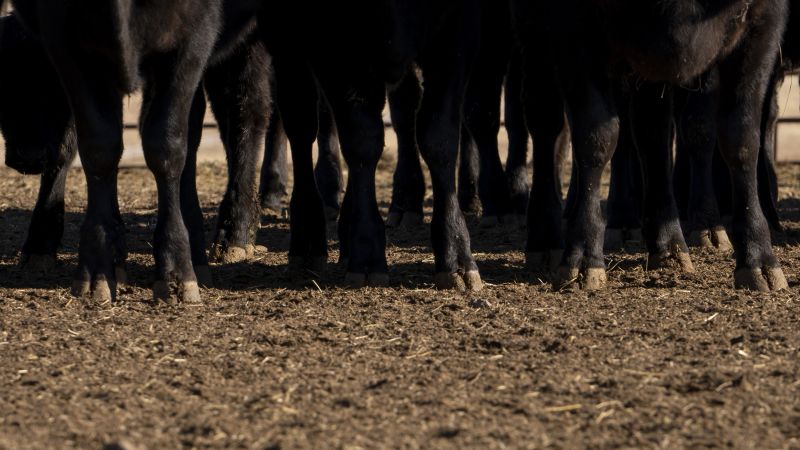
Dairy herds in Nevada test positive for newer bird flu strain that’s been linked to severe human infections
CNN
Six dairy herds in Nevada have tested positive for a newer strain of the H5N1 bird flu virus that’s been associated with severe infections in humans, according to the Nevada Department of Agriculture.
Six dairy herds in Nevada have tested positive for a newer strain of the H5N1 bird flu virus that’s been associated with severe infections in humans, according to the Nevada Department of Agriculture. The strain is not the same one that has been circulating in other dairy herds throughout the US. That virus is called B3.13. The newer strain, D1.1, has previously been detected only in birds and in people who had contact with infected birds. This is the second known instance of avian flu being introduced into cattle herds by birds, and experts say it marks a turning point in the nation’s efforts to contain the virus. “It’s much easier to control virus spread when you’re talking about a virus spreading from cow to cow than controlling spread from birds to cows,” said Dr. Scott Hensley, a microbiologist who studies the evolution of flu viruses at the University of Pennsylvania’s Perelman School of Medicine. D1.1 has been associated with two severe infections in people: a teenager in British Columbia who was hospitalized in critical condition last fall but eventually recovered and a senior in Louisiana who died from their infection in January. Farm workers in Washington state have also tested positive for D1.1 after culling infected poultry. Their symptoms were described as milder. Scientists are studying the D1.1 strain to try to learn more about its capabilities and how it appears to be spreading so aggressively.









